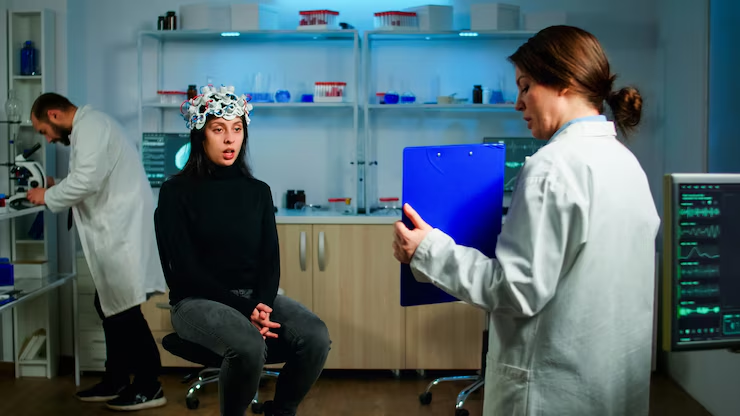Neurological disorders affect millions worldwide, disrupting daily life and posing significant healthcare challenges. At the forefront of online medical resources, doctorhub360.com neurological diseases offers an in-depth exploration of these complex conditions. In this guide, we’ll examine key aspects of neurological diseases—symptoms, risk factors, diagnostic strategies, and treatment options—empowering patients and caregivers with the knowledge needed to navigate their healthcare journey.
Understanding doctorhub360.com Neurological Diseases
Neurological diseases encompass a broad spectrum of disorders that impact the central and peripheral nervous systems. From headaches and seizures to neurodegenerative conditions, these ailments can vary in severity and prognosis. doctorhub360.com neurological diseases resources categorize disorders by region (brain, spinal cord, nerves) and by type (inflammatory, degenerative, vascular, etc.), helping users quickly find relevant information.
What Defines a Neurological Disease?
-
Central Nervous System (CNS) Disorders: Conditions such as multiple sclerosis, Parkinson’s disease, and stroke that affect the brain and spinal cord.
-
Peripheral Nervous System (PNS) Disorders: Including neuropathies and Guillain-Barré syndrome, which target nerves outside the brain and spinal cord.
-
Neuromuscular Disorders: Diseases like amyotrophic lateral sclerosis (ALS) and muscular dystrophy that impair the connection between nerves and muscles.
By framing disorders in these categories, doctorhub360.com neurological diseases guides patients toward accurate self-assessment and informed discussions with healthcare providers.
Common doctorhub360.com Neurological Diseases
Below are some of the most frequently encountered neurological diseases featured on doctorhub360.com:
1. Alzheimer’s Disease
Characterized by progressive memory loss and cognitive decline, Alzheimer’s affects millions of seniors. Early signs include forgetfulness, difficulty finding words, and disorientation.
2. Parkinson’s Disease
A movement disorder marked by tremors, rigidity, and bradykinesia (slowed movement). Parkinson’s often emerges in individuals over age 60 and progressively impairs motor functions.
3. Epilepsy
Defined by recurrent seizures, epilepsy can begin at any age. Seizure types range from brief lapses in awareness (absence seizures) to convulsive episodes (tonic-clonic seizures).
4. Multiple Sclerosis (MS)
An autoimmune disease where the immune system attacks myelin sheaths in the CNS, MS leads to muscle weakness, vision problems, and coordination issues.
5. Migraine and Chronic Headache Disorders
Severe, recurring headaches often accompanied by nausea, light sensitivity, and visual disturbances (auras). These can be debilitating and require long-term management.
Each of these conditions is profiled in detail under the doctorhub360.com neurological diseases section, offering up-to-date research findings, patient stories, and expert interviews.
Risk Factors and Prevention Strategies
Understanding risk factors is crucial in reducing the incidence and severity of neurological disorders. doctorhub360.com neurological diseases highlights both modifiable and non-modifiable factors:
| Risk Factor | Type | Prevention Strategy |
|---|---|---|
| Age | Non-modifiable | Regular neurological check-ups after age 50 |
| Family History | Non-modifiable | Genetic counseling and early screening |
| Hypertension | Modifiable | Diet, exercise, and medication adherence |
| Smoking | Modifiable | Smoking cessation programs |
| Poor Diet & Sedentary Life | Modifiable | Balanced nutrition and regular physical activity |
By addressing lifestyle-related risks, patients can take proactive steps to protect their neurological health.
Diagnosing doctorhub360.com Neurological Diseases
Timely and accurate diagnosis is the cornerstone of effective treatment. The diagnostic pathway for doctorhub360.com neurological diseases typically includes:
-
Clinical Evaluation: Detailed medical history, neurological exams assessing reflexes, muscle strength, coordination, and mental status.
-
Imaging Studies: MRI and CT scans reveal structural abnormalities, lesions, or atrophy in the brain and spinal cord.
-
Electrophysiological Tests: EEG for seizure disorders and EMG/NCS for peripheral neuropathies assess electrical activity in nerves and muscles.
-
Laboratory Tests: Blood work and cerebrospinal fluid analysis to detect infections, autoimmune markers, or metabolic issues.
-
Genetic Testing: In hereditary conditions like Huntington’s disease, genetic panels confirm diagnosis and guide family planning.
The comprehensive diagnostic guides under doctorhub360.com neurological diseases ensure patients understand each step, expected outcomes, and potential next steps.
Treatment and Management Approaches
Treatment plans for neurological disorders are highly individualized, combining medical, surgical, and supportive therapies. Key modalities featured on doctorhub360.com neurological diseases include:
Pharmacological Treatments
-
Antiepileptic Drugs (AEDs): To control seizures in epilepsy.
-
Dopaminergic Agents: For symptom relief in Parkinson’s disease.
-
Disease-Modifying Therapies (DMTs): To slow progression in multiple sclerosis.
Surgical Interventions
-
Deep Brain Stimulation (DBS): For advanced Parkinson’s and essential tremor.
-
Resective Surgery: In drug-resistant epilepsy to remove seizure-generating tissue.
Rehabilitation and Supportive Care
-
Physical Therapy: Maintains mobility and strength in degenerative disorders.
-
Occupational Therapy: Helps patients adapt to daily activities and maintain independence.
-
Speech Therapy: Addresses communication and swallowing difficulties.
Lifestyle and Complementary Therapies
-
Dietary Modifications: Ketogenic diets for refractory epilepsy; anti-inflammatory diets for MS.
-
Stress Management: Mindfulness, yoga, and cognitive behavioral therapy for chronic headache and pain.
Each treatment section under doctorhub360.com neurological diseases provides dosing guidelines, side-effect profiles, patient testimonials, and links to support groups.
Living with Neurological Disorders: Patient Resources
Coping with a neurological diagnosis involves more than medical treatment. doctorhub360.com neurological diseases offers robust patient support:
-
Educational Webinars: Hosted by neurologists and researchers.
-
Community Forums: Peer-to-peer support and experience sharing.
-
Caregiver Guides: Practical tips for daily care, safety modifications, and mental health support.
-
Financial Counseling: Information on insurance coverage, disability benefits, and charitable assistance.
These resources foster a holistic approach, addressing emotional, social, and financial aspects of living with neurological diseases.
Conclusion
Neurological disorders present complex challenges, but informed patients and caregivers can navigate them successfully with the right knowledge and support. The doctorhub360.com neurological diseases portal stands out as a comprehensive, user-friendly resource—covering everything from early warning signs to advanced treatment options. By leveraging these insights, individuals can partner effectively with healthcare professionals, advocate for optimal care, and maintain the highest possible quality of life.
